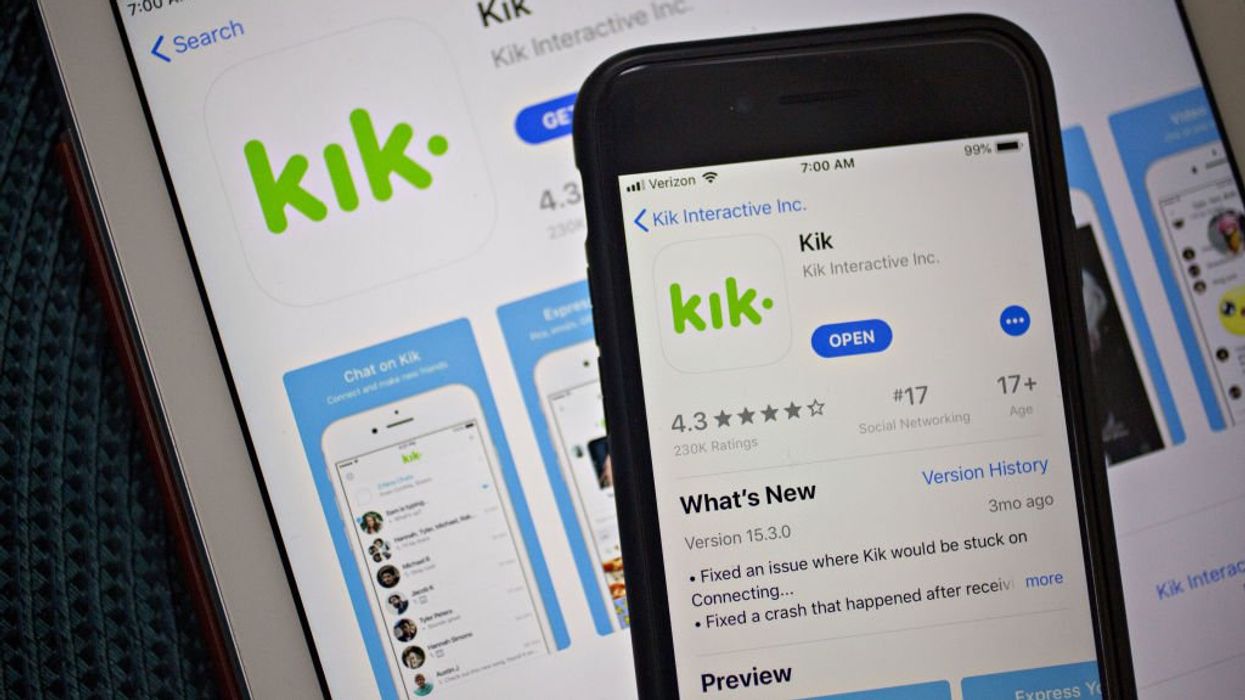
Bloomberg/Getty Images

Ryan Montgomery tells Align where the biggest threats are online — and what parents can do about them.
The United States faces a grave issue with online predators, particularly those targeting children. This growing threat has necessitated the rise of vigilant individuals like Ryan M. Montgomery.
If his name doesn't ring a bell, it should. Montgomery has dedicated his life to protecting the most vulnerable among us — children — from the dangers lurking in cyberspace. In a world increasingly governed by digital interactions, Montgomery stands as a guardian, exposing some of the most heinous individuals imaginable and saving numerous children in the process.
'Something that I hear all of the time from victims is that they were too scared to tell their parents because they didn't want to lose access to their devices.'
Heroism is often an overused term, but it is fitting for someone who commits his life to literally saving others. Montgomery’s journey into this dark underworld began with a deeply disturbing incident. "I got into the fight against human trafficking and violence against children because of a super disturbing incident," he recalls.
His friend's wife had sent him screenshots from a vile website where predators openly shared their depraved fantasies. Outraged and disgusted, Montgomery decided to do something. "The content was so appalling that it instilled a ridiculous level of anger in me, motivating me to take action on this specific website and dedicate myself to protecting others," he explains.
One of the most alarming aspects of Montgomery's work is the evolving methods predators use. Initially, they relied on text-based chat rooms to groom children, but the landscape has shifted significantly, “especially with the rise in online gaming, social media, video chatrooms, and even educational apps," Montgomery notes. Predators now exploit these platforms to manipulate children into revealing personal information or compromising photos — a tactic known as sextortion.
The methods used by these predators range from the relatively simple to the incredibly sophisticated. Grooming, for instance, involves predators building a seemingly innocent friendship with the child before gradually introducing inappropriate topics.
Catfishing, or creating fake identities, is another common tactic. "Predators will create a fake identity online, sometimes called 'Sock Puppet Account' or 'Catfish Account,' which tricks the child into believing they are speaking to someone else," Montgomery explains. Cyberstalking and sextortion add further layers of complexity and danger.
More advanced techniques include deepfake technology and location spoofing. "AI-generated child porn has become a very real thing over the last 12 months," Montgomery warns. Predators use real photos of children taken from social media and manipulate them into explicit images.
Location spoofing allows predators to fake their location, deceiving children into believing they are closer or in a trusted area. The dark web also plays a significant role in the distribution and viewing of illegal content, with predators using services like Tor to maintain anonymity.
It is crucial to recognize that not all apps are created equal, and some pose more potent dangers than others.
Snapchat, with its disappearing messages and location-sharing feature, is a favorite among predators. Discord, initially created for gamers, has become a grooming hotspot.
Montgomery reserves special ire for one app in particular: Kik, notorious for its lack of moderation. "I believe this app should be wiped from the internet," he says.
For the uninitiated, Kik allows users to send text messages, photos, videos, and other content. Worldwide, 15 million people use the app every month; roughly half of these people live in the United States. Kids enjoy using Kik because it is easy to navigate, lets them chat with friends quickly, and doesn't require a phone number — just a username. This makes it appealing for those who wish to keep conversations private. This can be both a blessing and a curse.
Kik is particularly dangerous for several reasons. Firstly, the app allows for anonymity, as users can create accounts with just a username, making it easy for predators to hide their true identity and pretend to be someone they're not.
Additionally, Kik has a history of weak oversight, allowing inappropriate and harmful content to spread without being caught quickly. The app also features public and private chat rooms where strangers can easily connect with kids, increasing the risk of encountering predators. Since messages and content can be exchanged without phone numbers, it becomes harder for parents to monitor who their kids are talking to.
So, how can parents protect their children in this digital age? Montgomery emphasizes that awareness begins at home. "Parents can do their best to ensure the safety of their kids through ... open communication," he advises. "Something that I hear all of the time from victims is that they were too scared to tell their parents because they didn't want to lose access to their devices."
In this day and age, Montgomery counsels compromise — maintaining access to devices while monitoring activity.
Utilizing parental control software is crucial. These tools allow parents to restrict and monitor applications and websites and even trigger alerts if their child is being groomed, bullied, or discussing self-harm. "This greatly reduces cases of exploitation by simply educating yourself on what exists on the internet in the first place," Montgomery emphasizes.
There are several effective parental control software options that can help parents monitor and manage their children's online activities. These are just a few examples:
Parents must also stay informed about new social media platforms and apps that children might use, Montgomery advises. They should also be prepared to involve law enforcement if necessary: "You should be aware of how to correctly report suspicious activity and predatory behavior to the correct authorities."
John Mac Ghlionn
Contributor